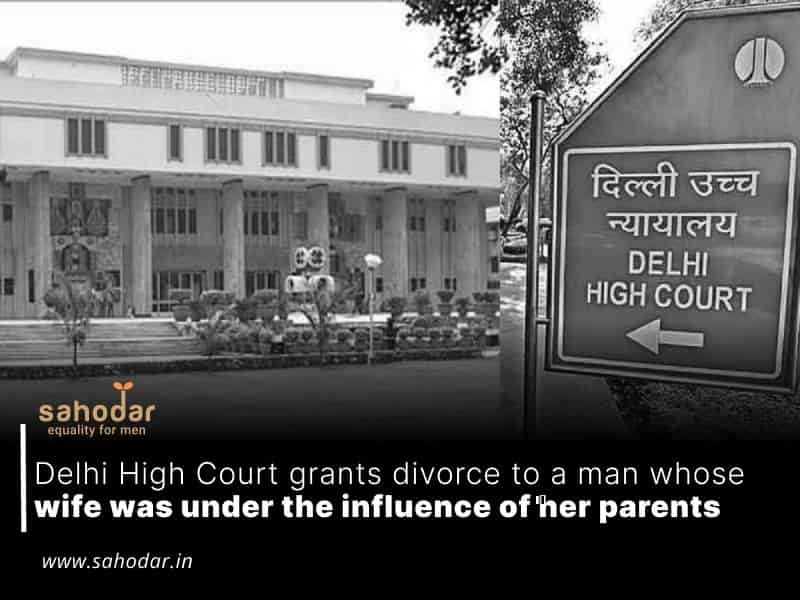The Delhi High Court has recently ruled in favour of granting divorce to a man, citing cruelty on the part of his wife, who allegedly remained under the influence of her parents, failing to nurture a relationship with her husband.
A bench led by Justice Suresh Kumar Kait highlighted the undue interference of the wife’s parents and family members in the couple’s married life, causing significant distress to the husband.
The High Court, overturning a family court’s decision that denied the husband’s plea for divorce, noted that the couple had lived separately for approximately 13 years. During this time, the husband endured the absence of marital intimacy and faced numerous complaints filed against him, actions deemed as forms of cruelty.
The bench, which also included Justice Neena Bansal Krishna, stated in its recent order, “We, therefore, conclude that the appellant (husband) has been able to successfully prove that he was subjected to cruelty by the respondent and is entitled to divorce.”
The court emphasised that the wife’s behaviour indicated a strong influence from her parents, hindering her ability to establish a bond with her husband. It labelled her actions as a rejection of marital duties, constituting mental cruelty toward the husband.
Continuing a “dead relationship,” the court asserted, would only perpetuate further suffering for both parties involved.
Addressing the issue of false complaints lodged against the husband and his family, the court condemned such actions as mental cruelty, affirming the right of any aggrieved individual to seek legal recourse while cautioning against abuse of the legal system.
The court underscored that the foundation of marital relationships rests on cohabitation and intimacy. Depriving a spouse of such companionship renders the marriage unsustainable, constituting extreme cruelty.
In the case, the court concluded that the evidence presented left no possibility for reconciliation between the couple. The prolonged separation, coupled with false accusations, police involvement, and legal battles, amounted to mental cruelty.
Ultimately, the Delhi High Court’s ruling reflects the importance of mutual respect, understanding, and cooperation in sustaining a healthy marital bond while also recognising the right of individuals to seek legal redress in cases of genuine grievances.

